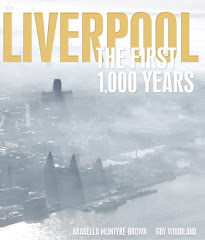
Rogues and vagabonds – that’s how actors and theatricals were regarded in the 17th century, and deportation was a distinct possibility. However, the first mention of theatre in Liverpool was a playhouse at the bottom of James Street, in 1649; not quite the theatre as we would recognise it – this would probably be a little less civilised. In the 17th and early 18th centuries actors would perform in old cockpits, assembly rooms or the inns on Dale Street and Water Street. In 1772, the Theatre Royal was opened in Williamson Square, and all the great actors of the day played there, including the Kembles. Charles James Matthews, another of the great actor-managers, was also born during a theatrical tour – in Basnett Street in 1803. By contrast, John Palmer, an untrustworthy character known as Plausible Jack, dropped dead on stage during a performance of The Stranger in 1798.
A number of famous theatrical names played in Liverpool en route to America: Sarah Bernhardt, Beerbohm Tree, Lily Langtry, Grimaldi, General Tom Thumb, and John Julius Booth. Booth, a popular actor in Liverpool, emigrated to America, where his sons were born; one – Edwin – became a famous actor, the other – John Wilkes – also became famous, as President Lincoln’s assassin….
A city that can claim to be the pop capital of the world might not be blessed with a classical tradition as well, but Liverpool boasts a track record of world-class musicians and music-making over several centuries… Liverpool has produced a slew of world-leading musicians, from conductors Adrian Boult and Simon Rattle and jazzman George Melly to the Beatles; from soprano Rita Hunter and heldentenor Alberto Remedios to folk group the Spinners. No surprise, in Music City, that Liverpool University has a thriving music scene, with its own jazz band, brass band, chamber orchestra, renaissance music group, wind orchestra, university choir, university singers, and the Liverpool University Symphony Orchestra…

No comments:
Post a Comment